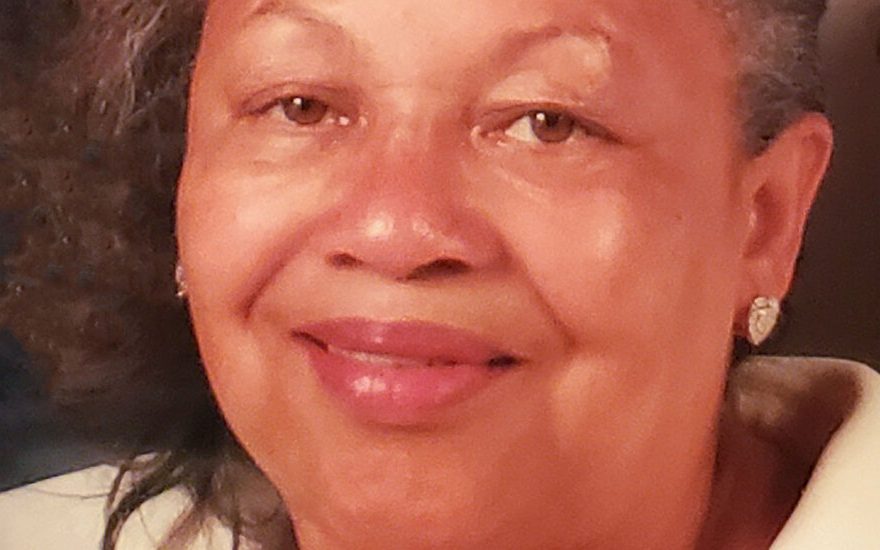A Black woman, Mrs. Duff broke gender and race barriers. She died of Covid-19.

By Stephen Kurczy
This obituary is part of a series about people who have died in the coronavirus pandemic. Read about others here.
Growing up in segregated Nashville in the 1950s, Elizabeth R. Duff once tried to sit at the front of a public city bus, where a sign warned that seats were for whites only. Her mother quickly pulled her to the back.
“She didn’t like it when people told her that she couldn’t do certain things,” said Mrs. Duff’s daughter, Virpi E. Carter. “She probably thought, ‘One day, I am going to sit at the front of the bus and I am going to drive that bus.’”
And so she did. Mrs. Duff in 1974 became the first woman bus driver in Nashville, her union said, navigating the capital’s streets for more than three decades. Described by other drivers as cool, calm and no-nonsense, Mrs. Duff was stern with misbehaving riders but known to reach into her own purse to help cover fares.
Being at the front lines of breaking gender and color barriers also meant Mrs. Duff endured sexism and racism, with people questioning a woman’s ability to drive and sometimes directing epithets from the seats behind her.

“It was a totally male-dominated field of work no matter where you were at in the U.S.,” her son Seneca Duff said. “To see a woman driving a bus as good as any guy would, if not better — some folks got jealous, some folks were shocked, some folks were really proud. She got it from both sides.”
Mrs. Duff died on Feb. 13 at a hospital in Nashville. The cause was Covid-19, her family said.
Elizabeth Ray was born in Nashville on Jan. 15, 1949. Her father, Joseph Ray, worked at a grain mill. Her mother, Lizzie Mai (Gooch) Ray, was a homemaker. She had three half-siblings.
While attending Cameron High School in the early 1960s, she began dating a halfback on the football team named Harry Duff. They were married in 1965 and had three children: Mrs. Carter, Seneca and Harry Duff Jr.
Latest Updates
Mrs. Duff had a lifelong passion for driving, according to her husband, who often took the passenger seat on family outings. She was a chauffeur for a Chevrolet dealer in Nashville in the early 1970s. In 1974, a decade after the first Black men were hired to operate city buses, she heard that the Nashville Metropolitan Transit Authority was opening up the job to women. Mrs. Duff made the news that year when she was hired.
The Coronavirus Outbreak ›
Let Us Help You Better Understand the Coronavirus
-
- Are coronavirus case counts rising in your region? Our maps will help you determine how your state, county or country is faring.
- Vaccines are rolling out and will reach many of us by spring. We’ve answered some common questions about the vaccines.
- Now that we are all getting used to living in a pandemic, you may have new questions about how to go about your routine safely, how your children will be impacted, how to travel and more. We’re answering those questions as well.
- So far, the coronavirus outbreak has sickened more than 106 million people globally. More than two million people have died. A timeline of the events that led to these numbers may help you understand how we got here.
“My daddy called outside for us, told us to come in the house because our mother was on TV,” her daughter recalled. “We were so excited. At the time, I don’t really think we knew what was taking place, what had transpired just like that.”
Sharing a locker room with the men (a women’s bathroom was added), Mrs. Duff “just blended in like everybody else,” said a former driver, Thomas J. Caruthers Sr. “She was just one of the boys.” (Mr. Caruthers, who was hired in 1966, was one of the first Black bus drivers in Nashville.)
Mrs. Duff created a kind of Duff family road dynasty: she inspired all three of her children to enter the profession. Seneca Duff followed in her footsteps and for a time, Mrs. Carter drove a school bus and Harry Jr. operated a tractor-trailer.
Along with her children, she is survived by her husband, 16 grandchildren and seven great-grandchildren.
Mrs. Duff retired in 2007 and became the financial secretary of the retiree chapter of her union, Local 1235 of the Amalgamated Transit Union.
After being named Urban Driver of the Year by the Tennessee Public Transportation Association in 2004, she described what drew her to driving. “I love to hear the sound of it,” she told The Tennessean. “When you really drive, you feel the vehicle itself. You listen to the motor. You feel the road.”
Site Index
Site Information Navigation
Source: Read Full Article
